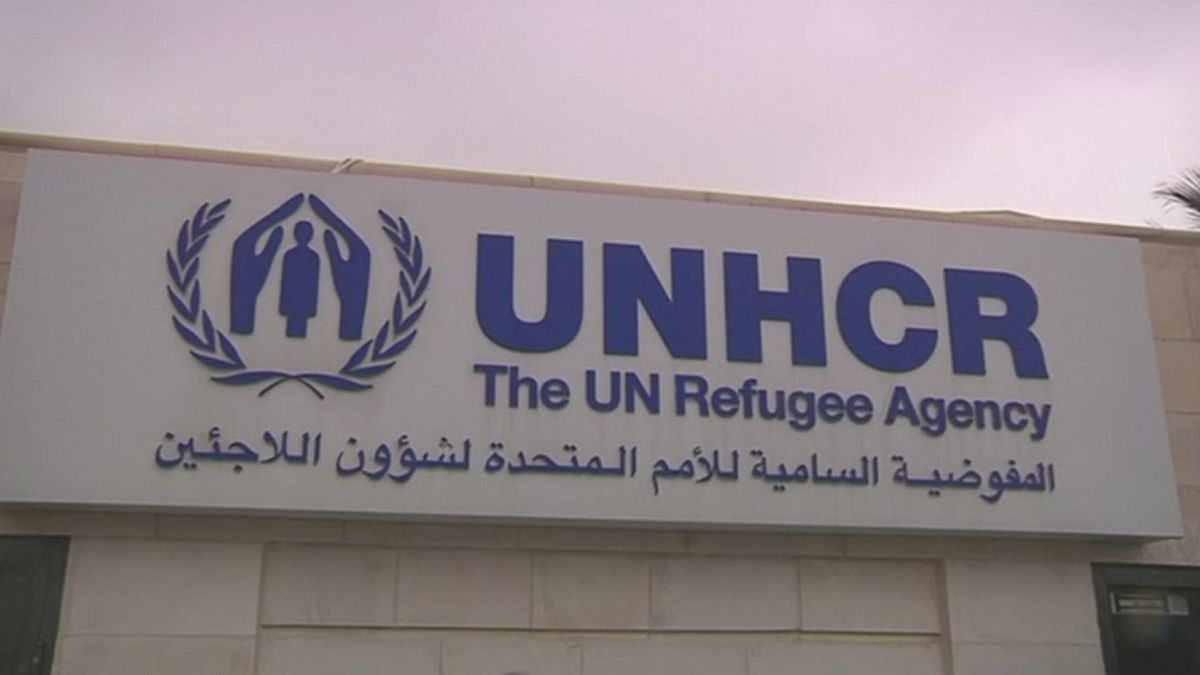With the stroke of a pen, thousands of lives are now in administrative limbo since Donald Trump imposed a US immigration and travel order.
There are Iraqis, Syrians, Yemenis, and others, at a refugee centre in Jordan. Their dream to find peace in the United States was quickly interrupted last Friday with a travel and immigration ban imposed by President Trump that affects seven predominantly Muslim countries.
Many of them are now in administrative limbo, like a Yazidi family from Sinjar in northern Iraq.
After fleeing persecution from Daesh in 2014, they were finally ready to leave for the US where they have relatives.
Hudeida Naif Rasho, Yazidi man:
“The procedure took six months, we did two interviews in Baghdad, we finished our medical tests and the organisation said that we would be travelling in ten days, be ready. But then they suspended it.”
In the US, a residence in Allentown, Pennsylvania was purchased for a family of Orthodox Christians from Damascus by their relatives.Everything was ready for them to start a new life in a neighbourhood with many Syrians, until they were turned away at the border.
Sarmad Assali, family member in the US:
“My brother-in-laws, two of them, with their families, coming to the United States on an immigrant visa, they arrived in Philadelphia Airport at 7:45 in the morning, to be put on the next plane to be returned to Qatar without allowing them to talk to us whatsoever.”
For some US citizens who where refugees, memories of war have come back with Trump’s travel ban, as well as fear and stigmatization.
Jeneba Berety, student, South High School, Denver:
“I’m one of those kids. You know, I come from a civil war. I remember the first day when we got here what my mom did at the airport … she got down on the floor and she kissed the floor, like, ‘I have found a safe haven’.’‘
Zahra Abdulameer, Iraqi student whose father worked with Americans:
‘‘Even though I am a citizen, I’m still a Muslim. And he’s against Muslims. So what if he goes and, like, targets Muslims that are citizens? You know? So that’s very … I’m fearful for that.’‘
Michigan-based immigration attorney Farah Al-Khersan, born in Iraq, was stopped with her husband in their car Friday night at the US border upon returning from dinner in Canada. She encountered hours of aggressive questions from federal agents and at one point was banned from re-entering the US and told to stay overnight in Canada.
She asserted her rights to reenter and agents then let them in at 3:30 am. She says there is currently a great deal of confusion amongst refugees and newcomers to the US.
Farah Al-Khersan, immigration attorney of Iraqi origin:
“They’re worried about being forced to go back to countries where they face persecution and possibly death. Yeah, so it’s just a lot of uncertainty and panic.”
It is especially the case of Iraqis who worked for the American army, a double penalty for a country at war since the American invasion in 2003.
